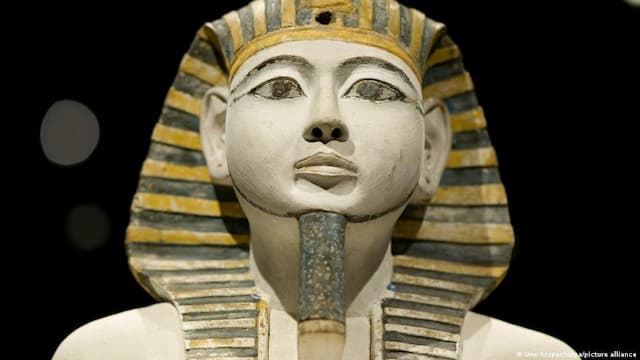When forgiveness outweighs repayment (Matthew 18:23–35)

Should people pay for their mistakes, or is it better to let them off the hook? Which works better in the long-term? Jesus had an opinion about that.
What thoughts spring to mind when you read forgiveness in the Bible? If your first thought is personal guilt and asking for salvation, you may struggle with the stories of Jesus, where it sounds like salvation is contingent on your works. It might make more sense to read them as stories about corporate restoration.
This one is about the kind of kingdom our king expects to run, how he expects his servants to represent him in his realm.
Jesus’ story
Matthew 18:23-35 (my translation, compare NIV)
23 So, the kingdom of heaven is like a human king who wanted to settle accounts with those who served him. 24 As he began the process, they brought him someone who owed $100,000,000. 25 Since he had no way to repay, his lord ordered he be sold up — along with his wife and children and everything he had — as repayment. 26 The servant fell to his knees in homage, saying, ‘Be patient with me, and I will repay it all to you.’ 27 Feeling love for this servant, the lord set him free and released him from his financial obligation.
28 But that servant went out and found one of his fellow servants who owed him $10,000. Seizing him, he choked him, saying, ‘Repay everything you owe!’
29 The fellow servant fell to his knees begging, ‘Be patient with me and I will repay you.’ 30 But the servant didn’t want to. He went and threw his fellow servant into prison until he could repay the debt. 31 When his fellow servants saw what happened, they were extremely agitated and went and explained the details of what happened to their lord.
32 Then the lord summoned him and said, ‘You evil worker! I released you from all that debt because you asked me. 33 Didn’t you have an obligation to show mercy to your fellow servant, in the same way I had mercy on you?’ 34 Infuriated, his lord handed him over to the torturers until he should repay everything he owed.
35 And that’s how my heavenly Father will treat you [plural], unless you each release your brother or sister from your hearts.
The parable compares God’s governance with a human king (ἀνθρώπῳ βασιλεῖ) who has an innovative approach to bankruptcy. In the ancient world, an insolvent debtor was sold up and indentured to pay the remaining debt by working as a slave. Any spouse or child was also sold into slavery. This was the normal practice in the Roman Empire and in other kingdoms before them, including ancient Israel.
The king in Jesus’ story is therefore going against the entire tide of history. One of his people owed him an outrageous amount, the largest debt they could record. (See Jeannine Brown’s commentary below.) But this king would prefer to wear the loss himself rather than have one of his families sold into slavery. His affection (σπλαγχνίζομαι) for his people outweighs how he feels about losing any amount you could think of (verse 27).
What do you think of this king? Is he wise? Would his generosity catch on and transform his kingdom into the most loving place on earth? Could it be the end of slavery? Maybe even the end of war if people stopped fighting each other for possessions? Could his approach transform the world into a different kind of economic state than we have ever known?
Or do you think his kindness would cause scoundrels to be more abusive than they already are? Would people see an opportunity to borrow money with no intention of paying it back, racking up whatever debts they could get away with? Is forgiveness a good idea? Or is it better to make people pay for their mistakes?
And this is what Jesus means by forgiveness. To forgive (ἀφίημι) is to release a person from the obligations they have to you. Whether it’s a social obligation to set things right or a financial obligation to repay a debt, to forgive is to set the person free so they no longer owe you anything. The two parallel words Jesus uses in verse 27 are setting the person free (ἀπολύω), and dismissing (ἀφίημι) the obligation.
The opposite of forgiving is requiring repayment, demanding the person meet their obligation. That’s why Jesus uses the verb repay (ἀποδίδωμι) seven times in the story (verses 25 [twice], 26, 28, 29, 30, 34).
While you’re still wondering whether this would make a good economic system for a kingdom, Jesus continues his story. There’s a major disjuncture between the actions of the king and the actions of his servant.
The king released his servant and dismissed the debt (verse 27). The servant seized his fellow and choked him (verse 28). The imagery is as insightful as it is graphic. Debt does choke the life out of us, for the borrower is slave to the lender (Proverbs 22:7). It’s no fairy tale when my breath is spent before I earn it, when “I owe; I owe; so off to work I go.”
How do you feel about this servant seizing and choking his fellow servant? Would you expect more empathy, since he has stood in the other guy’s shoes? Or would you say he has every legal right to recover his money? Is there any court that would deny the justice of his claim for repayment?
Actually, there is. In this particular kingdom, the king judges him as evil (verse 32). He’s immoral because he values the debt above the debtor. His actions are inexcusable because he knows what it is like to be valued for himself, not merely for what he can (or cannot) give the king. The servant is judged as evil because he does not share the ethics of his king, the ethics of the kingdom.
At this moment, we realize we jumped to conclusions too early if we thought the king was a softy who would forgive whatever the scoundrels did in his kingdom. This king also has a strong side.
The king unforgives his evil servant. Can you even do that? Is there such a word? Can you reinstate a debt after it has been pardoned? Apparently you can if you’re the king with authority to set the kingdom ethics.
Why would the king unforgive? Why was he angry? Why would he throw the unforgiving servant into a place where he would be tormented until he pays the impossible debt?
The point of the king’s generosity was to establish a kingdom where his people were not enslaved. That doesn’t work if his servants keep enslaving each other. The evil servant is undermining his leadership, white-anting his long-term vision for his kingdom, harming his people with values he does not share, values smuggled in from the kingdoms of the world. He must nip it in the bud so it cannot destroy the kingdom.
Possession may be nine-tenths of the law in the kingdoms of the world, but in this kingdom caring for people is ten-tenths of the justice system. Like a parent intervening so the children don’t harm each other, the king intervenes to prevent his servants seizing and choking each other over debts.
The king values the kingdom. The people are the kingdom. The people must value each other as the king values them. That means forgiving each other — setting each other free instead of holding each other enslaved to obligations, just as the king has done for them.
Conclusion
The king has radically freed us from our unmet obligations to him, but he will not let us use that freedom to seize and choke each other. He doesn’t value us by what he can get from us, and he won’t let us devalue each other that way either.
This is a truly astounding kingdom. I’m still coming to terms with this vision of the world under God’s governance.
How did Jesus get such insight into what life on earth could be like if we were living as our heavenly sovereign intended (as a kingdom of heaven)? Was this totally new vision? Or could he see the seeds of this kingdom in Old Testament story of the people of God?
That’s the question we’ll consider next time, when we hear Jesus explaining what his story means (verse 35).
What others are saying
Michael J. Wilkins, Matthew, NIV Application Commentary (Grand Rapids, MI: Zondervan, 2004), 625–639:
This takes us to a central principle of the kind of kingdom life that Jesus has inaugurated. A person who has truly experienced the mercy and grace of God by responding to the presence of his kingdom will be transformed into Jesus’ disciple, which, in a most fundamental way, means experiencing a transformed heart that produces a changed life that gives the same mercy and grace one has received from God (cf. Isa. 40:2). …
Jesus says that his community of disciples is the primary witness to the reality of the presence of the kingdom throughout this age. Our witness comes through both our declaration of the gospel and living out that gospel as a family of faith. What will characterize our fellowship is humility, purity, accountability, discipline, reconciliation, restoration, and forgiveness. …
True reconciliation is not simply a tolerant attitude toward one another in the same living space. It is a real, personal, loving connection between individuals that Jesus desires, and without a heart attitude of forgiveness, this type of connection is not even possible.
Another important facet to consider is that often our forgiveness of others points people toward God’s forgiveness of them. Forgiveness not only sustains the intimacy of the community, but it is a powerful device that allows people to make change in their own lives and move on toward deeper intimacy with God.
Jeannine K. Brown, Matthew, Two Horizons NT Commentary (Grand Rapids, MI: Eerdmans, 2018), 173–174:
The parable’s primary character, aside from the king, is a slave who owes his master ten thousand talents, an extraordinary amount of money. A talent (τάλοντον, talanton) is the largest measure of currency, and ten thousand the highest number of reckoning. With a (silver) talent worth about six thousand denarii (one denarius equals a day’s wage), the amount owed would exceed what a common laborer could earn in thousands of lifetimes! …
The story goes on—the slave, who has been freed from an unfathomable debt, immediately seeks out a fellow slave who owes him one hundred denarii—a third of a year’s wages for common labor (his own debt just forgiven was about six hundred thousand times the amount owed to him).
Related posts
- How far does forgiveness go? (Mt 18:21-22)
- Forgiveness: reciprocated or rescinded (Mt 18:23-35)
- Unconditional forgiveness? (Mt 6:14-15)
- What is forgiveness? (Mt 9:5-6)
Seeking to understand Jesus in the terms he chose to describe himself: son of man (his identity), and kingdom of God (his mission). Riverview Church, Perth, Western Australia
View all posts by Allen Browne










